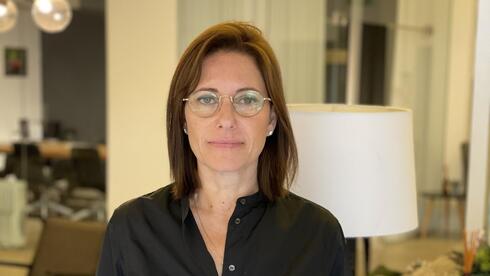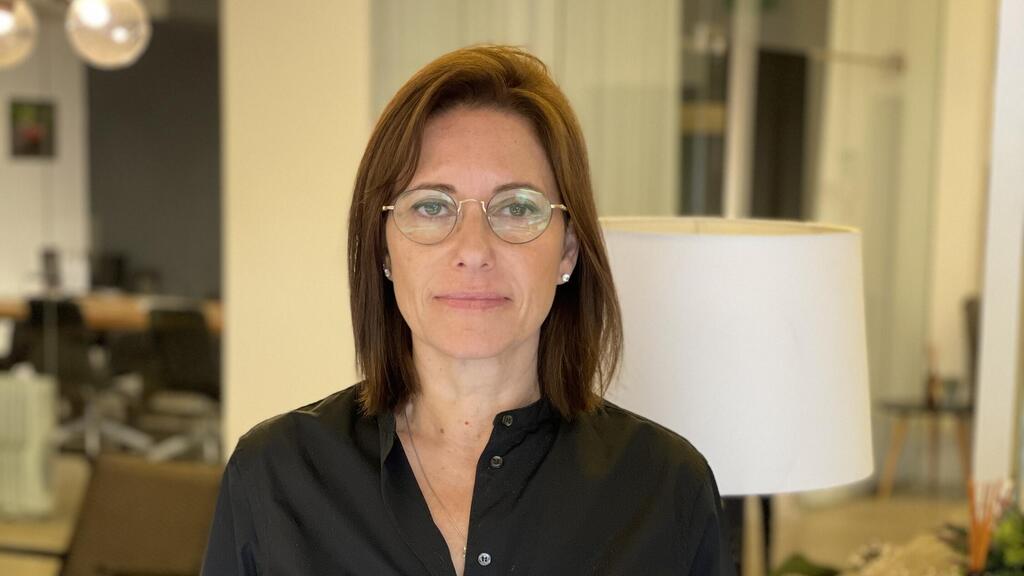
2024 VC Survey
"Israeli startups have consistently demonstrated their ability to innovate, pivot, and thrive in dynamic environments"
Blumberg Capital’s Yodfat Harel Buchris joined CTech for its VC Series where she outlined how Israel can stay afloat amid war, highlighting the resilience of Startup Nation.
"While recent protests and geopolitical tensions have posed significant challenges for the Israeli high-tech sector, it's important to recognize the inherent resilience of the ecosystem," said Yodfat Harel Buchris, Managing Director of Blumberg Capital. "The Israeli high-tech sector has historically demonstrated a remarkable capacity for resilience and adaptability in the face of adversity. Israeli startups have consistently demonstrated their ability to innovate, pivot, and thrive in dynamic environments. Adversity often serves as a catalyst for innovation and growth. As a result of these challenges, startups will emerge stronger, more agile, and better prepared for the uncertainties of the future."
In 2023, Blumberg Capital continued to invest in Israel’s innovation. "We announced our investment in three young Israeli companies: Creednz, Myrror Security, and PerfectScale; and also reinvested in Israeli-founded Pontera," she added.
VC fund ID
Name of the fund: Blumberg Capital
Total assets: $850M
Leading partners: David Blumberg, Bruce Taragin, Yodfat Harel Buchris
Latest investments in Israel: PerfectScale
Selected portfolio companies: FundGuard, Hunters
From your perspective, was 2023 a ‘lost year’, or can the events that happened during it be seen as a springboard for opportunities in 2024?
2023 was a challenging year, but certainly not a 'lost year.' In fact, 2023 was extremely productive in that it forced startups to set their organizations up to quickly adapt, persist, and be resilient through good times and not-so-good times.
2023 served as a learning opportunity for founders. Startups improved their communication channels, team structures, and leadership approaches to foster a culture of collaboration and resilience. By fostering unity and overcoming obstacles together, diverse perspectives both boosted morale and accelerated innovation.
Startups also evolved their approach to customer engagement. There was more iteration in product development as well as service delivery to address customer needs. As a result of proactive outreach initiatives, personalized interactions, and enhanced channels for feedback, founders cultivated loyalty and trust among their customers.
For many companies, the 2023 economic environment encouraged a strategic overhaul of budgetary practices. Founders navigated this terrain with dynamic budgetary strategies, including scenario planning, cost optimization, and diversified revenue streams. Besides ensuring financial sustainability, this agility enabled companies to capitalize on emerging opportunities and mitigate potential risks.
What do you believe is more crucial to the state of Israeli tech: the influence of global processes and the global economy, or the local events ranging from the political protest to the war state?
As a global fund invested in the Israeli tech ecosystem, it's imperative to recognize the symbiotic relationship between global processes and local events.
On one hand, the impact of the global economy cannot be overstated. Israel's tech industry is deeply interconnected with global markets and fluctuations in the global economy. As such, staying abreast of global trends and developments is crucial for gauging market opportunities, identifying potential risks, and making informed investment decisions.
On the other hand, local events, ranging from political protests to geopolitical tensions and conflicts, also exert a significant influence on the Israeli tech ecosystem. These events can impact investor sentiment, disrupt supply chains, and introduce regulatory uncertainties, all of which have tangible effects on startup operations and growth prospects. Moreover, local dynamics, including government policies, talent retention, and infrastructure development, shape the long-term trajectory of the Israeli tech sector. Engaging with these local intricacies is essential for fostering a nuanced understanding of the ecosystem and identifying investment opportunities that align with Israel's unique strengths.
Has the prestige of Israeli high-tech been damaged, or are the protests and the war merely a 'small bump in the road' from which the sector can recover within months?
While recent protests and geopolitical tensions have posed significant challenges for the Israeli high-tech sector, it's important to recognize the inherent resilience of the ecosystem.
The Israeli high-tech sector has historically demonstrated a remarkable capacity for resilience and adaptability in the face of adversity. Israeli startups have consistently demonstrated their ability to innovate, pivot, and thrive in dynamic environments. Adversity often serves as a catalyst for innovation and growth. As a result of these challenges, startups will emerge stronger, more agile, and better prepared for the uncertainties of the future.
In 2023, Blumberg Capital continued to invest in Israel’s innovation. We announced our investment in three young Israeli companies: Creednz, Myrror Security, and PerfectScale; and also reinvested in Israeli-founded Pontera. Finaro announced its acquisition by SHIFT4. Other Israeli portfolio companies like BioCatch emerged as a unicorn in 2023.
How are you preparing for the most pessimistic scenarios, such as the continuation of the war in Gaza deep into 2024, the opening of another front in the north, or further reduction of government support for high-tech?
We recognize the importance of preparing for scenarios that may impact the Israeli tech ecosystem and continue to partner closely with our portfolio companies to ensure resilience and adaptability. This includes assisting startups in developing robust business continuity plans tailored to navigate various contingencies, fostering a culture of agility, and empowering our portfolio companies to anticipate and mitigate potential disruptions, safeguarding their operations and sustaining growth.
Responsible financial management is crucial in uncertain times. Blumberg Capital works closely with startups to optimize their financial strategies, ensuring efficient allocation of resources, diversification of funding sources, and contingency planning.
How many investments did you make in 2023, and how does it compare to 2022?
Number of investments: 17, which compared to 2022 is roughly 50% less
In your view, will the amounts and/or the number of deals in 2024 be more like those of 2023 or 2021-22?
More like 2023.
Which high-tech sectors will you focus on in the upcoming year? Which areas will maintain their prominence, and which ones appear less attractive?
Our focus will remain on AI-driven B2B solutions in fintech, cybersecurity, supply chain and logistics, health tech, data analytics & infrastructure, and enterprise software.
What changes will you implement in your approach to evaluating investments in startups in the coming year, compared to the previous two years? What practices will you abandon, and what criteria will you now demand from founders?
Blumberg Capital will continue to prioritize comprehensive due diligence when evaluating potential investments deepening our focus on changing market dynamics. There will be a heightened emphasis on validating the market need and willingness to pay for a product or service. This entails extensive market research, engaging our CIO Council of CIOs, CISOs, and IT decision-makers, and getting feedback from potential customers to assess the viability and scalability of a startup's offering.
The bar has also been raised for founders. They should be prepared to show a more robust track record of market validation and customer engagement before considering investment. Founders should secure relevant design partners, address feedback from potential customers, and demonstrate a clear understanding of market dynamics and the competitive landscape. By prioritizing founders who have already demonstrated traction and market fit, we aim to mitigate early-stage risks and improve the probability of success for our portfolio companies.
Do you think it is likely we will witness encouraging IPOs, the emergence of unicorns, or remarkable exits in 2024?
Indeed, it is possible that we will witness encouraging IPOs, the emergence of unicorns, and remarkable exits in 2024. However, it's essential to acknowledge the evolving landscape surrounding these events. While the appetite for IPOs remains robust for many startup companies, the bar for public offerings has been raised, necessitating a demonstrated track record of revenue growth and profitability. Startups are increasingly expected to show substantial ARR and clear paths to sustainable scalability to meet investor expectations.
On the M&A side, the demand for innovative solutions, especially AI-enabled solutions, persists among enterprises, looking to accelerate business productivity and growth. In 2023, several of our portfolio companies were acquired, including Israeli-founded Finaro’s acquisition by Shift4, a global leader in integrated payments and commerce technology. Startups with compelling value propositions and demonstrated market traction are well-positioned to attract acquisition interest and secure favorable exit opportunities.
Provide an example of an intriguing investment you made in 2023. What sets this company apart, or what is distinctive about its sector?
PerfectScale: In 2023, Blumberg Capital led the Seed round for Israeli-founded PerfectScale, a pioneering startup dedicated to revolutionizing the management and optimization of Kubernetes environments. PerfectScale's mission to simplify the complexities of DevOps and platform engineering resonated deeply with us, particularly in light of Kubernetes' exponential growth and its pivotal role in modern cloud-native applications. What sets PerfectScale apart is its innovative approach to addressing the challenges inherent in scaling and managing Kubernetes clusters, offering easy-to-use solutions that empower teams to make informed, data-driven decisions.
PerfectScale has already shown early customer traction and delivered tangible value to organizations navigating the complexities of Kubernetes operations. With a platform that seamlessly adapts to the unique demands of Kubernetes clusters, PerfectScale enables organizations to achieve scalability, operational efficiency, and reliability without compromising performance or incurring excessive costs. PerfectScale is helping shape the rapidly evolving Kubernetes infrastructure landscape.
Practical and current tips for founders planning upcoming money-raising efforts - focus on the current market environment and sentiments:
Start Early and Validate Continuously: Don't wait until your product is fully developed to engage with potential customers. Start the conversation as soon as you conceive the idea. Engage with prospects to gauge their reaction to your concept and gather valuable feedback. Embrace the lean startup philosophy, which emphasizes getting in front of prospects from day one. By validating your idea early and continuously refining it based on customer feedback, you can avoid the pitfall of investing significant time and resources into a product that may not meet market needs.
Listen and Adapt: When engaging with potential customers, prioritize listening over pitching. Seek to understand their pain points, challenges, and preferences, and be open to adapting your product based on their feedback. Avoid the common mistake of being too focused on convincing prospects of your product's merits without truly understanding their needs.
Avoid Offering Discounts Prematurely: While securing early sales is crucial, resist the temptation to offer steep discounts to close deals quickly. Discounting may establish unsustainable pricing precedents and undermine your long-term pricing power. Instead, explore alternative incentives to incentivize initial purchases without compromising your pricing strategy.
Name two portfolio companies that you think will thrive in 2024:
FundGuard
Sector and Description: Fintech. A financial platform powered by artificial intelligence that identifies anomalies, auto-resolves exceptions, and suggests improvements to operations, enabling asset managers and fund administrators to reimagine product offerings into digital experiences in real-time.
Funding: $54 million
Founded: 2018 by Lior Yogev, CEO and Co-founder; Yaniv Zecharya, CTO and Co-founder; Uri Katz, VP R&D and Co-founder
Why is this their year:
Global financial institutions such as State Street already rely on FundGuard for cloud-native, AI-powered investment operations. Financial institutions will quickly follow as they look to use AI to accelerate efficiency and growth. The company was named to Calcalist’s 2023 most promising startups.
Hunters
Sector and Description: Cyber. Hunter is a cutting-edge threat hunting platform that empowers security teams to proactively detect and respond to cyber threats across their digital environments. Leveraging advanced AI and machine learning capabilities, Hunter provides real-time visibility into potential security incidents, enabling organizations to stay ahead of evolving threats and safeguard their critical assets effectively.
Funding: $110 million
Founded: 2018 by Uri May, CEO; Tomer Kazaz, CTO
Why is this their year:
Organizations like Booking.com, ChargePoint, Yext, Upwork, and Cimpress already leverage Hunters’ SOC Platform to empower their security teams. Demand for Hunters will accelerate as organizations increasingly rely on AI to proactively protect their organizations and augment their workforces.














